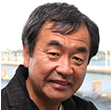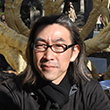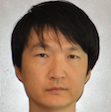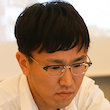What You'll Learn
- Development of contemporary Japanese architecture since the 1964 Tokyo Olympics
- Features of works of influential Japanese architects
- Theories behind practices in contemporary Japanese architecture
- Present concerns and potential future directions for contemporary Japanese architecture
Architects and Their Works of the Module
Module 1 Introduction
1.1 - 1.5: Revisiting Kenzo Tange
Module 2 Arata Isozaki and Hisao Kohyama
2.1 - 2.4: In Search of a Space - Arata Isozaki, The Museum of Modern Art, Gunma (1974)
2.5 - 2.9: Learning from Style - Hisao Kohyama, Sainokuni Saitama Arts Theater (1994)
Module 3 Terunobu Fujimori and Hidetoshi Ohno
3.1 - 3.5: New Primitivism - Terunobu Fujimori, La Collina Omihachiman (2014)
3.6 - 3.10: Connecting the Dots - Hidetoshi Ohno, Heart Nursery School (2014)
Module 4 Kengo Kuma and Kazuyo Sejima
4.1 - 4.5: Architect without Architecture - Kengo Kuma, Asakusa Culture Tourist Information Center (2012)
4.6 - 4.10: Too Large As Architecture Too Small As City - Kazuyo Sejima, Inujima "Art House Project" (2010-)
NOTE: The interview videos with Kazuyo Sejima (4.7 - 4.10) were released as additional contents after the course end.
Module 5 Review - 1st Facet: Theory
5.1 - 5.8: Review
Module 6 Final Exam
Course Staff
Kengo Kuma
University Professor
The University of Tokyo

Kengo Kuma is a University Professor at the University of Tokyo, where he completed a master’s course in architecture in 1979. He established Spatial Design Studio in 1987, Kengo Kuma & Associates in 1990, and the Europe branch of his office in Paris in 2008. Prof. Kuma is an Architecte DESA, Architecte inscrit au Tableau de l’ Ordre des Architectes, International Fellow for the Royal Institute of British Architects, Honorary Fellow for the American Institute of Architects, and has received a Ph.D from Keio University. He has previously taught at Columbia University, Keio University, and the University of Illinois.
In Prof. Kuma’s position at the University of Tokyo, he explores the relationship between practice and education. His awards include the AIA DuPont Benedictus Award, the Togo Murano Award, the Spirit of Nature Wood Architecture Award, the Energy Performance + Architecture Award, the Decoration Officier de L’Ordre des Arts et des Lettres, the Mainichi Art Award, the MEXT Art Encouragement Prize, the Japan Information-Culturology Society Award, and the 6th ASIAGRAPH Award.
Yusuke Obuchi
Associate Professor, Department of Architecture
Graduate School of Engineering
The University of Tokyo

Yusuke Obuchi is an Associate Professor in Architecture at the University of Tokyo, where he has directed Obuchi Laboratory at the Department of Architecture since 2010. He is also a founding Co-director of the Advanced Design Studies Program, which consists of Digital Fabrication Lab, Sustainable Prototyping Lab, Media Initiative Lab, Design Think Tank, Design Practice Lab, Social Design Lab, and Computational Unit. Prof. Obuchi was Co-Director of the Design Research Laboratory at the Architectural Association (AA) in London from 2005 to 2010, and Course Master and Unit Master of the Architectural Association from 2003 to 2005. He studied architecture at Princeton University, Southern California Institute of Architecture, and the University of Toronto. He has previously taught at Princeton University, Harvard University’s Graduate School of Design, University of Kentucky, and New Jersey Institute of Technology.
Prof. Obuchi teaches design studios, workshops, and seminar courses where he explores the concepts of materiality, design systems, computational design techniques, and fabrication processes in contemporary architecture and design. He has previously worked for Reiser-Umemoto in New York and ROTO Architects in Los Angeles. His research projects have been published and exhibited widely in the U.S. and Europe, and have been included in the National Triennial Exhibition at the Cooper Hewitt Museum in New York City, Architecture Biennial Beijing, Architecture Biennial Rotterdam, Zurich Design Museum, Tokyo Designers Week, and Barcelona Design Museum.
Toshihiko Kiuchi
Assistant Professor, Department of Architecture
Graduate School of Engineering
The University of Tokyo

Toshihiko Kiuchi is an Assistant Professor in Architecture at the University of Tokyo, where he received his Ph.D in 2013. He is working for Media Initiative Lab at the Advanced Design Studies Program (T_ADS). As a lecturer, Prof. Kiuchi taught architecture at Ochanomizu University, Tokyo University of the Arts, Tokyo University of Science, and Musashino Art University. He has previously worked for Architectural Planning Office of Faculty of Engineering of the University of Tokyo and Ken Yokogawa Architects and Associates Inc.
His research interest is in the theory of space in architecture. He studied a spatial principle through analyzing architectural experiences in the works of Carlo Scarpa in his doctoral thesis, and believes that the concept of space is the key to think the relation between materiality and abstraction. Through this course, he’s hoping to study the perspectives of architects who have played a significant role in broad areas where "Humans" and "City,” or "Technology" and "Theory" are crossing.
Toshiki Hirano
Teaching Assistant, Department of Architecture
Graduate School of Engineering
The University of Tokyo

Toshiki Hirano is PhD candidate at the University of Tokyo and founding partner of Toshiki Hirano Design.
He holds a Bachelors degree from Kyoto University and received his Master of Architecture degree from Princeton University with Suzanne Kolarik Underwood Prize. Prior to founding the firm, Hirano has worked for Reiser + Umemoto RUR DPC, where he involved in the Kaohsiung Port Terminal Project and the Taipei Pop Music Center Project. His projects have been published on various magazines such as MARK, Architectural Digest, designboom, suckerPUNCH, and Bustler.
He has been teaching a design studio with Kengo Kuma at the University of Tokyo, and has been organizing an annual exhibition “Japanese Junction” which showcases studio projects from universities around the world including Harvard GSD, SCI-Arc, AA School, UCL Bartlett, ETH Zurich.
He is a licensed architect in Japan.